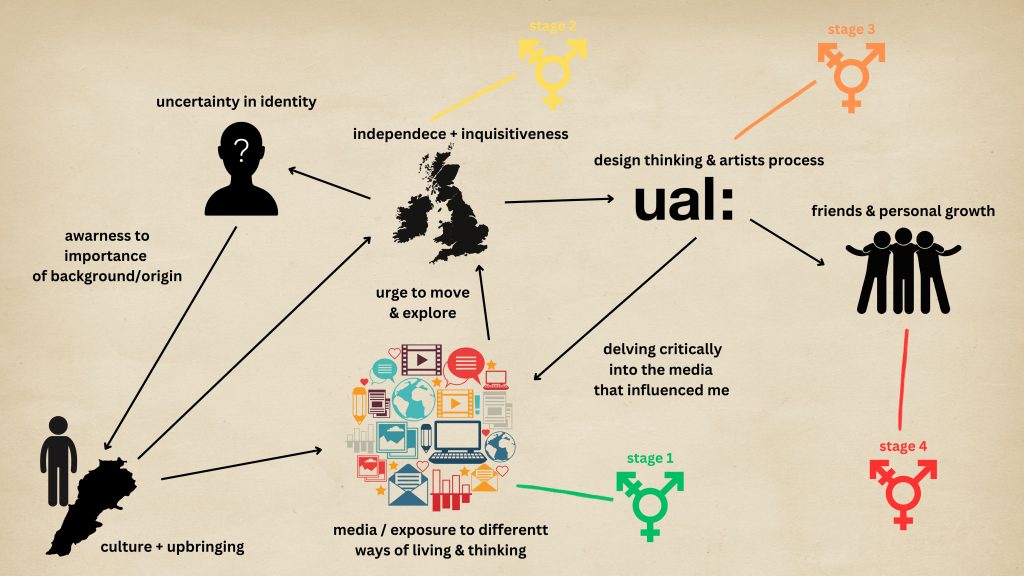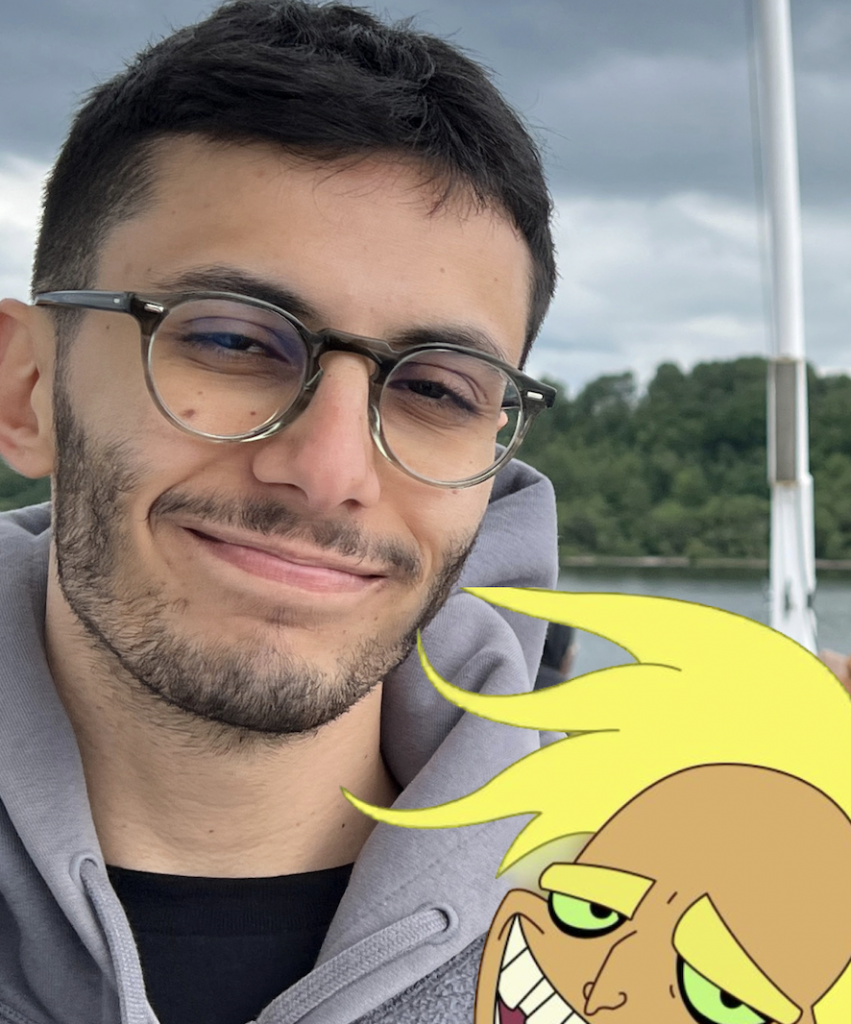The current iteration of my research question is “How does character-building in video games challenge default identities and disrupt norm chronology, fostering alternative self-concepts?“
Default Identity: One’s self is shaped by societal, cultural and familial expectations and often adopted without personal exploration or a deviation from norms.
Norm Chronology: The societal timeline where the life path of a straight, cisgender, abled person is the norm. Those who deviate often discover their authentic selves later due to environments that don’t encourage individualism.
Whilst I am passionate about the relatively unexplored concepts of norm chronology and default identities, I have been struggling with actualising my intentions into a comprehensive process. Identity has been at the forefront of my projects for many years, and I want the course of Applied Imagination to be the driver that pushes me to create a question that drives my personal/professional journey, both within and outside UAL.
My passion for video games has been relevant from my earliest memories. The fictional world of role-playing and character-building in video games often serves as a mirror for real-life identity exploration. However, after further reflection, I have begun contemplating using video games as the “driver” of my themes of identity and gender. It was a convenient pathway; however, after some assessment through discussions and research, I have begun reconsidering my approach.
Taking a step back and reflecting on my learning ecology will allow me to review each step of my journey and the experiences and learnings that led me to this moment. I aim to ensure my project reflects my perspective, abilities, and strengths as a researcher and designer.
The learning ecology exercise below signifies the moments that have led me to who I am today. The gender symbols are categorised in different stages to represent my comfort with my sexuality and identity.

Identifying the critical incidents and moments in my life has explained my urge to tackle the subject of identity continuously, perhaps in an attempt for some form of self-indulgence and justification. Exposure to diverse media, moving to London, and building a community of friends have all shaped my self-development and discovery.
While I might want to continue pursuing my topic of identity, I am currently feeling detached from the research and action research portion. Dealing with a personal topic has created some roadblocks for me; if I focused on an outcome that is more relevant to what I want my experience to be after this degree, would that be of better use?
A quote by Christopher Johns, author of Becoming a Reflective Practitioner, explains my current position quite well. Johns illustrates that reflection is a lens through which practitioners can examine and focus on themselves within the framework of their lived experiences. This process allows them to identify, confront, and work toward resolving contradictions between what is desirable and actual practice. By engaging with these conflicts, committing to desirable work, and understanding why things are as they are, the practitioner can take more appropriate action in future situations (2013).
As I approach the end of my first year of this course, what is the next step? Formulating an idea by sitting across a screen will not yield the fruitful results I hope for. Adopting a greater effort at action research will allow me to collect first-hand research that will more comprehensively inform the impact of my work.
Scepticism about the validity of my process will only harm it. My next step is to re-evaluate my research question. While it will likely evolve throughout research and interventions, I am eager to take a few steps back and create a more relevant guiding framework—one where I am not constantly battling my inhibitions.
References:
Johns, C. (2013) Becoming a reflective practitioner. 5th edn. Oxford : Wiley-Blackwell
